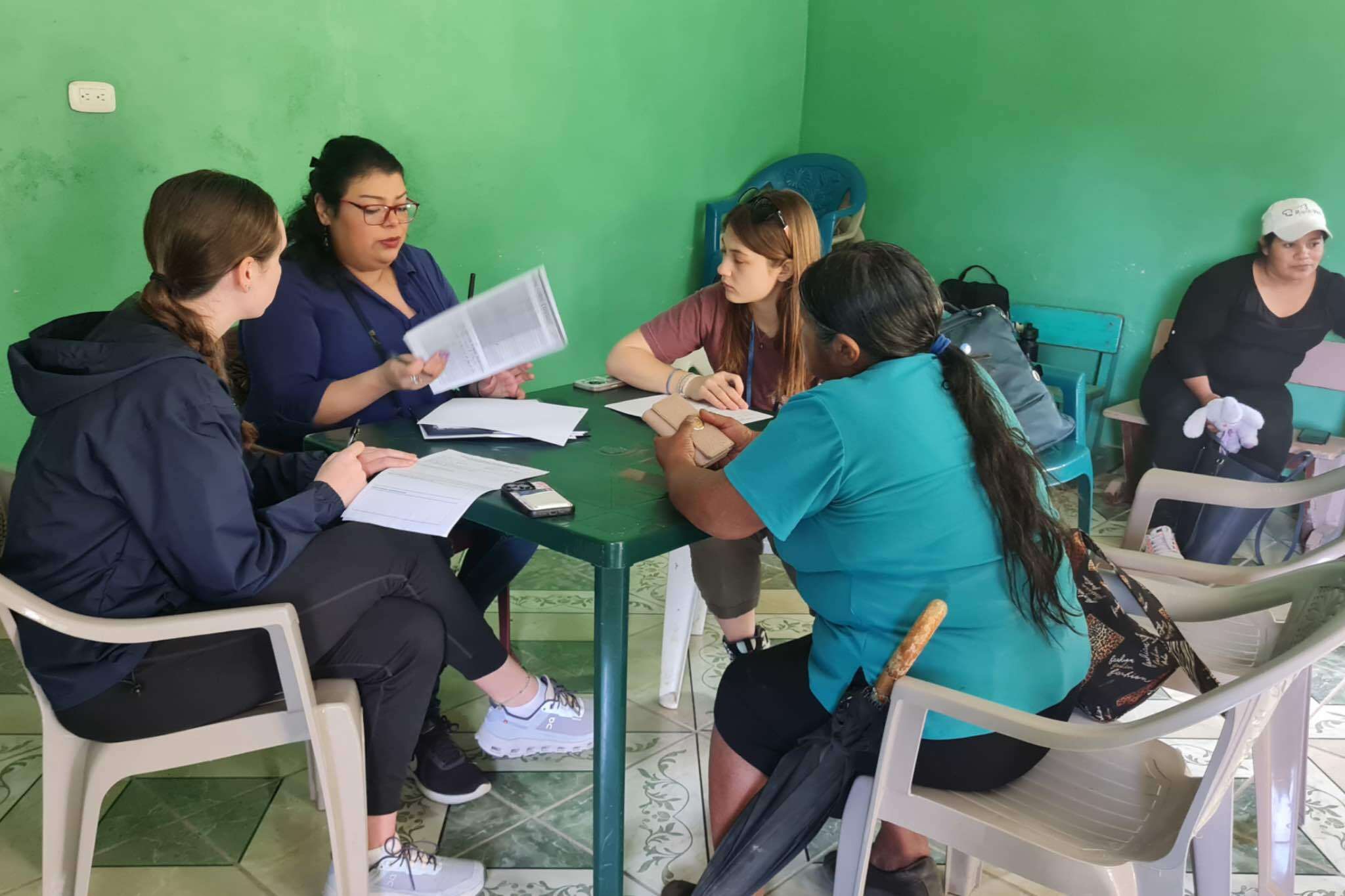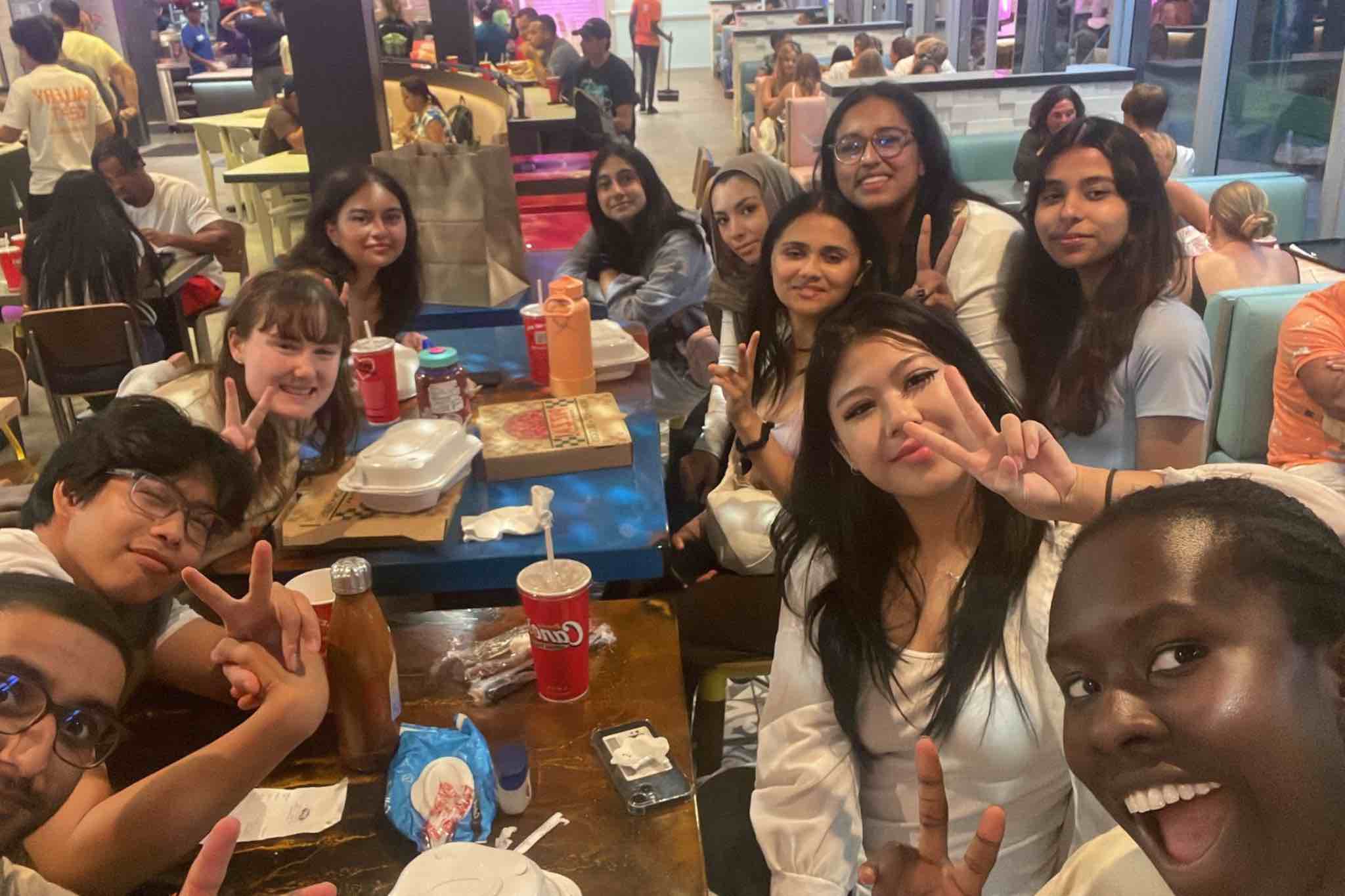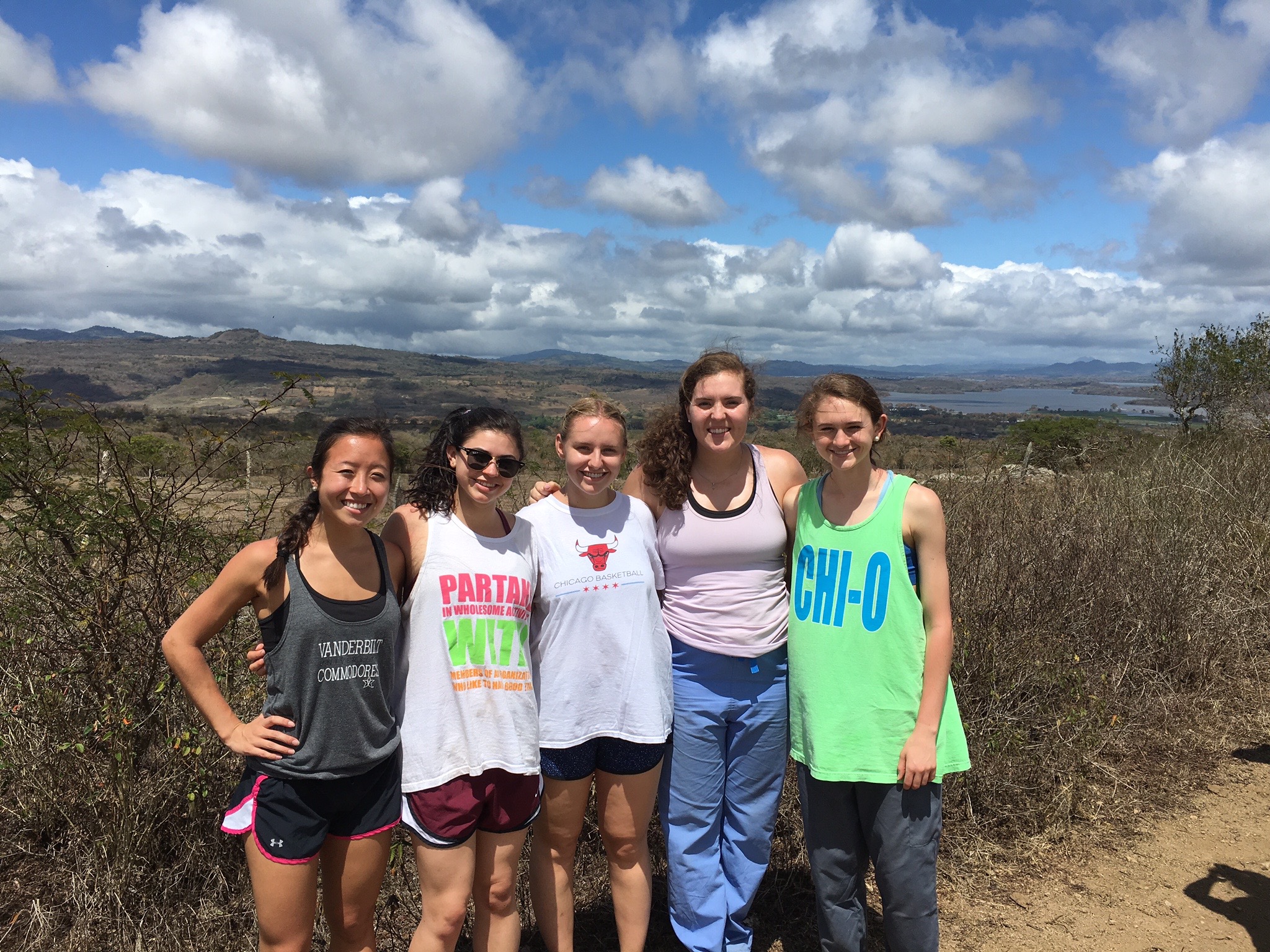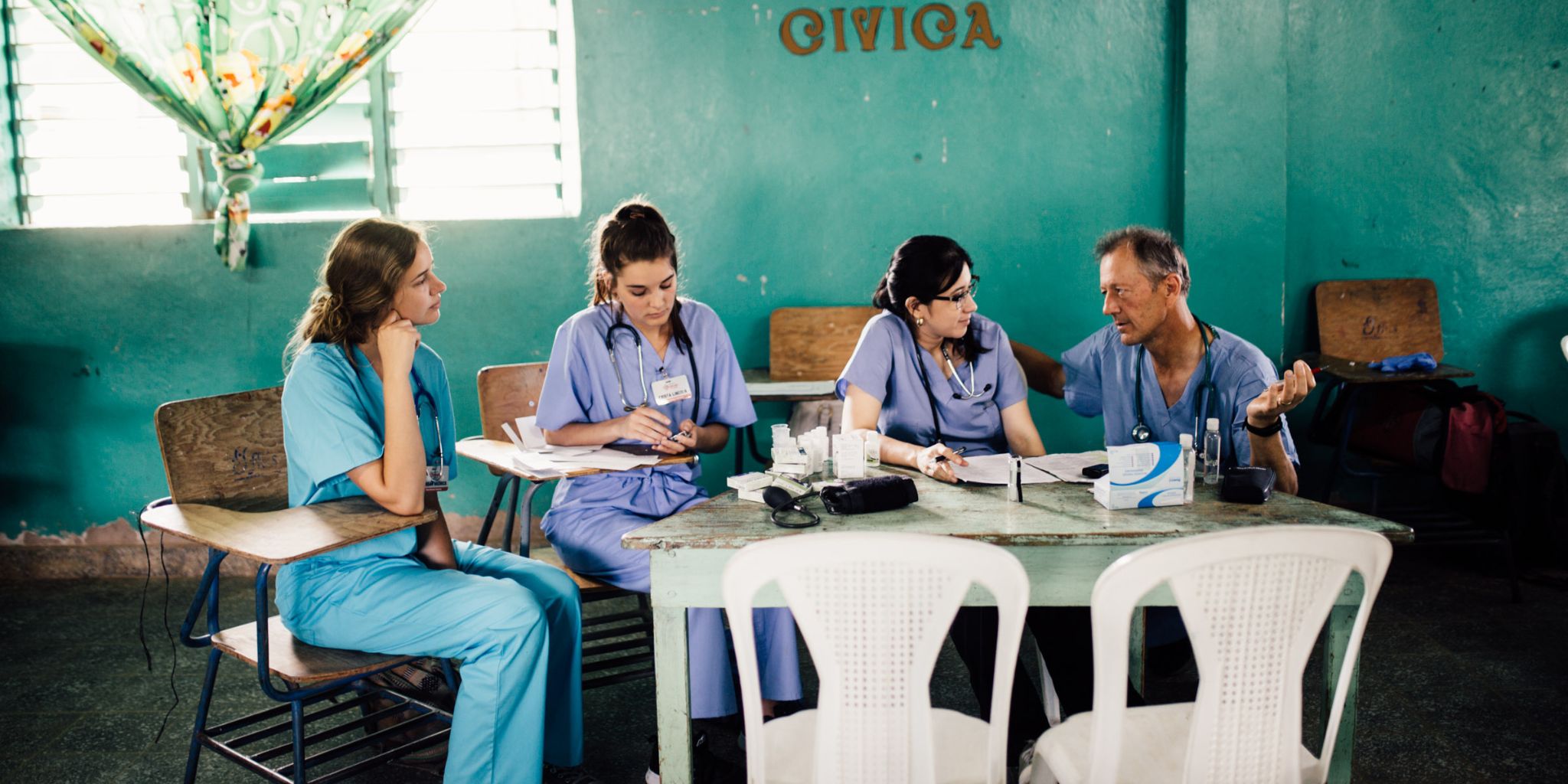How to Document and Journal Your Brigade Experience
We always suggest adding a journal to your packing list for Medical Brigades. Journaling allows time for regular reflection and enables volunteers to process emotions during their experience. It can be a therapeutic outlet and record your time for future reference.
Sharing your reflections in a responsible way at the end of a Brigade can also be a source of information and inspiration for others.
Benefits of Journaling During Your Brigade
Journaling during your Brigade can serve several different purposes. It can be a reflective, even therapeutic practice, or a way to remember things you’d like to share elsewhere later. You may not realize the benefits of daily journaling until you’re back from your Brigade.
A journal entry from the start to the end of a Brigade can reflect personal growth, foster self-awareness, and boost self-esteem.
Medical Brigades can be incredibly rewarding. The opportunity for personal growth and on-the-ground experience is a big reason why we’re the largest student-led movement for global health.
Enhance Personal Growth
Journaling is a structured way to explore your thoughts, emotions, and experiences. Regular reflection can help you understand your emotions and motivations.
On a Brigade, this can look like evaluating what brought you here, identifying what you’d like to get out of the experience, or analyzing whether some of those motivations are more self-serving than useful to others.
This kind of introspection is beneficial in recognizing personal strengths and areas of improvement with self-compassion. If you like setting goals and tracking progress, a journal can increase accountability and motivation as you pursue personal development.
Create a Keepsake
Journaling is an excellent way to remember meaningful life experiences, especially when it’s not always appropriate to photograph everything. It’s a way to note the details of experiences that become fuzzy as time passes.
Keeping a journal captures the essence of your thoughts and feelings at that moment. It’s a snapshot in time and a record of your journey that you’ll undoubtedly return to. Much like a photo album, it can also be a personal memorabilia.
Therapeutic Aid
Journaling is a good tool for processing your emotions and experiences. By writing down your thoughts, you may be able to gain some clarity about why you’re feeling a certain way. It can also be a safe outlet for processing your raw emotions without a filter, reducing overall stress.
Before Brigades, we urge volunteers to confront potential biases, especially the underlying kind. Journaling can help you get there. Over time, keeping a journal can help you track how you’re evolving and boost resilience when faced with similar challenges.
Reference Material for Applications
Many of our student volunteers sign up for Medical Brigades to gain experience in global health. In addition to the experience of shadowing doctors, volunteers come out of Brigades with different perspectives on navigating unique healthcare challenges.
Journaling can serve as a record as you craft personal statements for future medical opportunities. It can help your application essays reflect more authenticity.
Documenting your contributions during a Brigade can also help you remember the skills you developed, like teamwork and problem-solving. Plus, a journal will make it easier to give specific examples along the way.
If you plan on using journaling as a form of record-keeping, keep that in mind from day one to make the most of your reflection.
Brigades are more than a vacation abroad, but a chance to grow. Reflect on challenges you faced and how you solved them. Think about how the experience reinforced your commitment to medicine.
Journaling Prompts for Brigade Volunteers
Journaling doesn’t have to follow a set format, but sometimes it’s easier to work from a template when figuring out what to reflect on. Prompts can help you get started, especially if you’re out of practice with a regular journaling habit.
Daily Prompts
Leave some time in your morning routine to check in with yourself before the activities of the day. Set morning intentions that remind you to be present, lead with empathy and compassion, and approach the experience from a place of growth.
If you’ve been having a difficult time, your morning intentions may be focused on creative problem-solving or building resilience. Organizers are always available to support you through any problems or mental health struggles.
Here are a few example prompts to start your day:
- How do you want to show up today for community members, staff, other volunteers, and yourself?
- What challenges do you anticipate today, and how do you plan to address them?
- What are you grateful for today, and how will you remind yourself of that when things feel hard?
- What personal or professional goals do you want to work toward today?
- What’s your plan for staying present and mindful today?
Check in with your journal at the end of the day, too. Describe any meaningful moments. Here are a few prompts to help you guide your thinking:
- Write about a memorable encounter from the day. Why was it memorable?
- What knowledge did you gain today, and how does that impact your understanding of global health?
- What challenges did you face today, and how did you overcome them?
- What cultural differences did you notice today, and how do they affect your approach to healthcare moving forward?
- Describe any mentorship or guidance you experienced today. How will it influence your work and learning?
End of Brigade Reflections
Journaling at the end of a Brigade is a powerful way to inventory your experience. It allows you to process challenges and personal growth and deepen your understanding of the impact you made.
Here are a few prompts to get you in a more reflective mindset at the end of your Brigade:
- In what ways have you grown since the start of the Brigade?
- What was the most impactful experience of the Brigade?
- How have these experiences influenced your future plans and aspirations?
- Reflect on the relationships built during the Brigade. What did you learn from community members, clinic staff, and your peers?
- What steps will you take to build on this experience moving forward?
How to Document Your Brigade Experience
How you journal depends on your preferred modes of communication and note-taking. Choose a method that suits your reflection or writing style that you’ll stick with during your Brigade.
Journaling can look like:
- Handwritten journal entries
- Bullet journal of notes, thoughts, and feelings
- Real-time note-taking using digital apps and organizers
- Art journaling that includes drawings, sketches, or mixed media
- Audio journaling with recorded voice notes or memos to document experiences
- Collages or travelogues of photos and videos
If you plan on adding visual components to your journal, always get consent before taking someone’s photo or video. This matters even if that footage is for personal use and won’t be posted on social media.
Sharing Your Story
How you share about your time on a Brigade depends on the intended audience. The thoughts in your journal may be for your eyes only or they may be the basis of a personal essay. Anything more public than that requires an additional layer of care.
What to Avoid
Before posting Brigade experiences publicly, especially when it comes to photos or videos, we ask volunteers to be mindful of privacy concerns. Did you ask for permission to take that picture?
Avoid identifiable information about community members so that you’re never in the position of violating international privacy laws.
From there, consider the intent. Is it self-serving? Does it represent the goals of Global Brigades? Think about the impact of sharing certain experiences, especially of community members in vulnerable situations.
Be particularly careful about social media, where it can be hard to convey the full scope of an experience. If you’re not able to accurately represent what’s happening in a post with the space given, it may not belong there. Avoid sensationalism and respect cultural norms.
We want your Brigade to be a meaningful experience. We actively seek out volunteer feedback and testimonials to hear about the ways a Brigade changed you, moved out, or set you on a new path.
If you’re ready to start your own journey, join us on a Medical Brigade to learn more about yourself and make a long-lasting impact.







